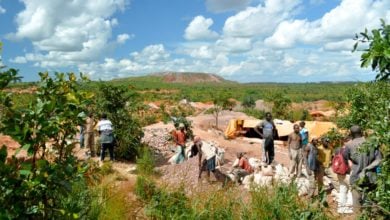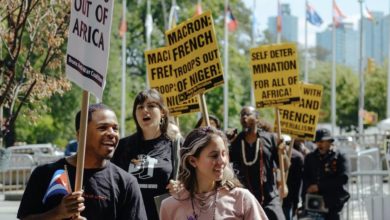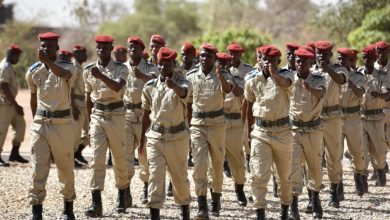International capitalist competition for resources continues to fuel a conflict in the Congo that has claimed at least 5 million lives in the past 10 years alone.
|
At the heart of the conflict are the region’s vast mineral resources. Nkunda’s organization, the National Congress for the Defense of the People (CNDP), operated as a proxy for Rwanda’s economic interests in the Congo. Nkunda had longstanding ties to Rwanda’s ruling Rwandan Patriotic Front. Nkunda tried to conceal his surrogate role by claiming his fight was against Hutu organizations that he said had committed genocide in Rwanda and were hiding in the Congo.
Nkunda himself is wanted for war crimes and his forces had terrorized the eastern Congo throughout the latter half of 2008. His forces were able to rout the Congolese military and seize a significant chunk of territory, displacing a minimum of 250,000 people.
While Rwandan officials have denied arming Nkunda, a December 2008 U.N. report found that Rwanda had “been complicit in recruiting soldiers, including children, facilitated the supply of military equipment, and sent their own officers and units to the DRC to support the CNDP.”
Three basic zones of influence were controlled by Rwanda, Uganda and the DRC government, with all players using various proxies in the region. Nkunda’s enemies, the Hutu Democratic Liberation Forces of Rwanda, were allied with the DRC, while local Mai-Mai militias worked with all sides. Rwanda and Uganda both have strong links with the West. Rwanda has particularly strong ties with the United States, where President Paul Kagame received his military training.
The DRC government also has arrangements with Western companies that dominate the resource extraction field. A U.N. expert report found that there were 119 different companies involved in mining operations or the transportation of minerals. It also noted that many of the African-based firms were simply fronts for foreign companies. Out of these companies, 21 were based in Belgium—Congo’s former colonial master—and nine in the United States.
Of late, however, the Congo has also displayed a tendency towards independent economic policymaking. The Congo struck a deal with China that would provide $6 billion in new roads, two hydroelectric dams, hospitals, schools and a railway, plus another $3 billion in mining infrastructure investments.
While many other African nations have similar deals with China, U.S. and European imperialists have long considered the Congo their exclusive domain. The Financial Times recently reported that Western nations threatened to withhold their debt relief to the DRC if it did not renegotiate its mining contract with China.
The plot to split up the Congo
So why did Rwanda, backed by the West, arrest Nkunda, who had done their bidding in eastern Congo and vocally opposed the deal with China?
It seems the West has another agenda: the break-up of eastern Congo. Uganda has been foremost amongst those promoting free trade areas across central Africa designed to split up the Congo, with portions of it being absorbed into Uganda and Rwanda. Different schemes of this sort have also been proposed by imperialists such as Nicholas Sarkozy and former U.S. Assistant Secretary of State for Africa Herman Cohen.
Quite simply, Nkunda was disposable to Rwanda and the West. Despite his years of loyal service, his reputation as a war criminal had become a liability.
The arrest of Nkunda does not mean an end to the ongoing wars in the region. The DRC and Rwanda have supposedly joined together to fight another rebel group, the Democratic Liberation Forces of Rwanda. In the northern part of the DRC, Ugandan, south Sudanese, and Congolese soldiers launched attacks in mid-December on the rebel group the Lord’s Resistance Army, responsible for enormous numbers of atrocities and crimes. The attack failed, and the LRA forces killed over 900 people in several villages.
It is clear that the machinations of imperialism, plus the greed and opportunism of local elites are continuing to lead to great suffering for the Congolese people.
Nkunda’s arrest, whatever the reasons behind it, and the current campaign of the governments of Rwanda and Uganda in the Congo are simply new chapters in a long-term power game, in place since Belgian colonialism. Such maneuvers are likely to produce only continued destruction, rape and death, with tangible benefits only for a few rich elites both in the Congo and abroad.
Progressive and revolutionary people in the United States need to expose the crimes being committed in the Congo with the backing and the urging of Western multinational corporations and governments, and build a movement against U.S. imperialism. This is the only way out. The problems of Africa cannot be solved as long as the dirty, bloody hands of the Pentagon continue to pull the strings.






